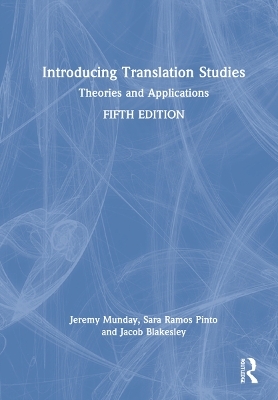
Introducing Translation Studies
Routledge (Verlag)
978-0-367-37052-7 (ISBN)
Introducing Translation Studies remains the definitive guide to the theories and concepts that make up the field of translation studies. Providing an accessible and up-to-date overview, it has long been the essential textbook on courses worldwide.
This fifth edition has been fully revised, and continues to provide a balanced and detailed guide to the theoretical landscape. Each theory is applied to a wide range of languages, including Bengali, Chinese, English, French, German, Italian, Punjabi, Portuguese and Spanish. A broad spectrum of texts is analysed, including the Bible, Buddhist sutras, Beowulf, the fiction of Proust and the theatre of Shakespeare, European Union and UNESCO documents, a range of contemporary films, a travel brochure, a children's cookery book and the translations of Harry Potter. Each chapter comprises an introduction outlining the translation theory or theories, illustrative texts with translations, case studies, a chapter summary, and discussion points and exercises.
New features in this fifth edition include:
New material to keep up with developments in research and practice; this includes the sociology of translation chapter, where a new case study employs a Bourdieusian approach; there is also newly structured discussion on translation in the digital age, and audiovisual and machine translation;
Revised discussion points and updated figures and tables;
New in-chapter activities with links in the enhanced ebook to online materials and articles to encourage independent research;
An extensive updated companion website with video introductions and journal articles to accompany each chapter, online exercises, an interactive timeline, weblinks, and PowerPoint slides for teacher support.
This is a practical, user-friendly textbook ideal for students and researchers on courses in translation and translation studies.
Jeremy Munday is Professor of Translation Studies at the University of Leeds, and is an experienced translator. He is the author of Style and Ideology in Translation (Routledge 2008) and Evaluation in Translation (Routledge 2012), and he is the editor of The Routledge Companion to Translation Studies (2009). Sara Ramos Pinto is Associate Professor in Translation Studies at the University of Leeds. Her work focuses on audiovisual translation and multimodality, and her most recent publications include articles in The Translator (2021), Target (2020) and Translation and Multimodality (2020). She is also an experienced subtitler and theatre translator. Jacob Blakesley is Associate Professor in Comparative Literature and Literary Translation at the University of Leeds, where he codirects the Leeds Centre for Dante Studies. He directs the Routledge Studies in Literary Translation series (with Duncan Large) and the Peter Lang Studies on Dante series (with Matthew Treherne).
A visual tour of Introducing Translation Studies
List of figures and tables
Acknowledgements
List of abbreviations
Introduction
1 Main issues of translation studies
2 The basic concepts of early translation theory
3 Equivalence and equivalent effect
4 Studying translation product and process
5 Functional theories of translation
6 Discourse and Register analysis approaches
7 Systems theories
8 Cultural and ideological turns
9 The role of the translator: visibility, ethics and sociology
10 Philosophical approaches to translation
11 New directions from audiovisual translation and digital technology
12 Research and commentary projects
Bibliography
Index
| Erscheinungsdatum | 19.04.2022 |
|---|---|
| Zusatzinfo | 12 Tables, color; 18 Line drawings, color; 9 Halftones, color; 27 Illustrations, color |
| Verlagsort | London |
| Sprache | englisch |
| Maße | 174 x 246 mm |
| Gewicht | 780 g |
| Themenwelt | Geisteswissenschaften ► Sprach- / Literaturwissenschaft ► Sprachwissenschaft |
| ISBN-10 | 0-367-37052-2 / 0367370522 |
| ISBN-13 | 978-0-367-37052-7 / 9780367370527 |
| Zustand | Neuware |
| Informationen gemäß Produktsicherheitsverordnung (GPSR) | |
| Haben Sie eine Frage zum Produkt? |
aus dem Bereich


